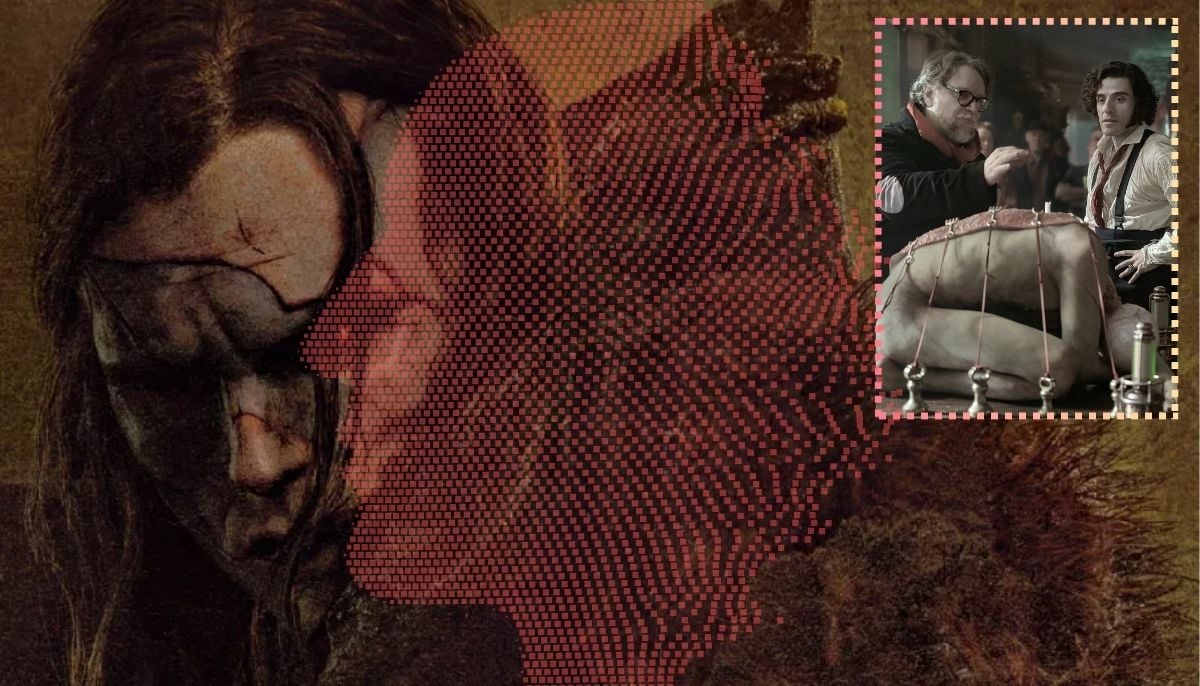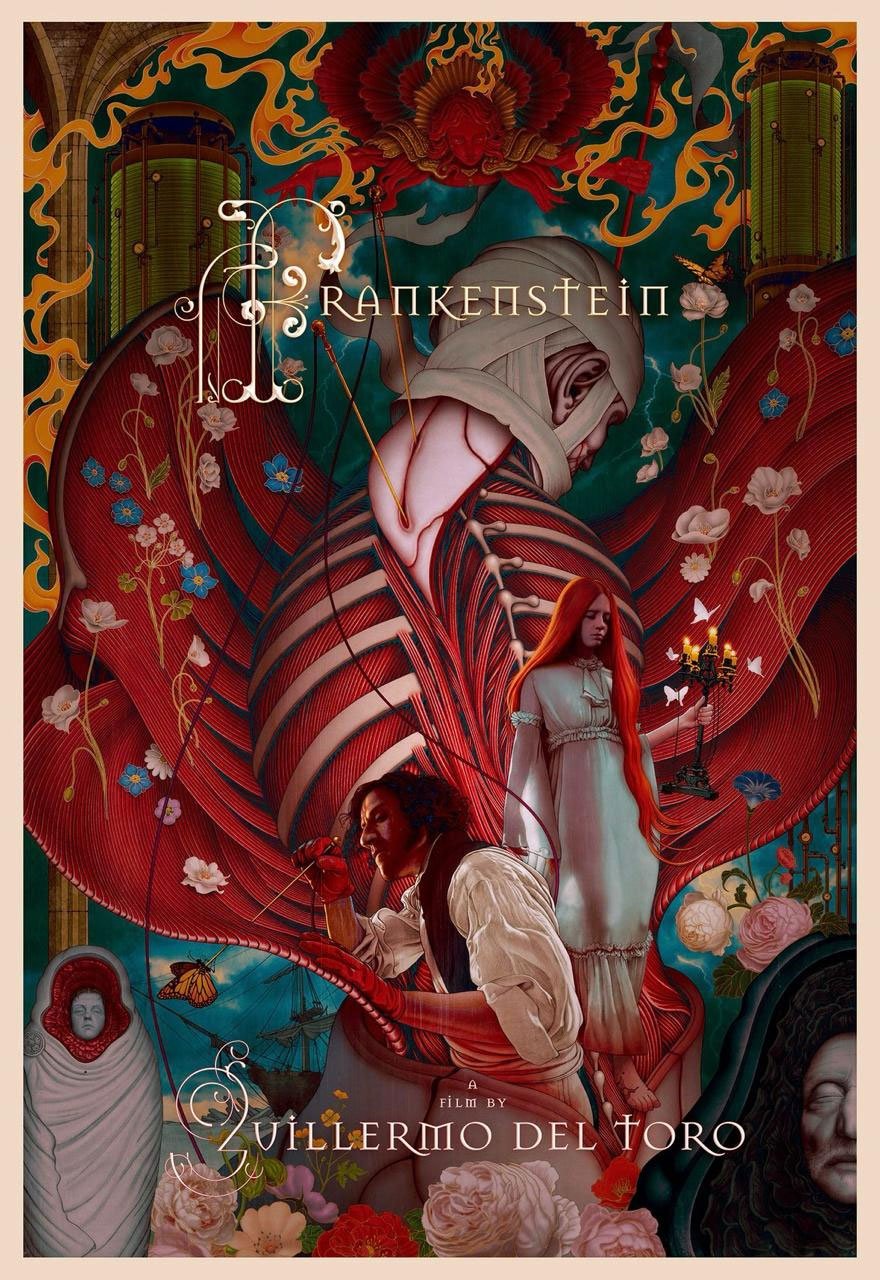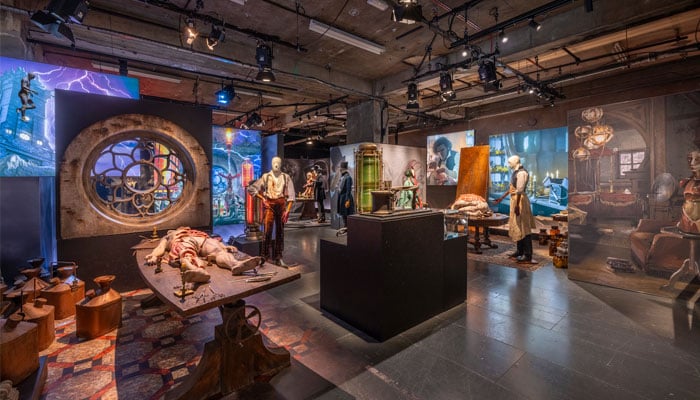Home / Entertainment
21st century Prometheus: Is ‘Frankenstein’ Guillermo del Toro’s ambitious answer to AI?
Guillermo del Toro’s ‘Frankenstein’ could be the timely allegory on artificial intelligence we need right now

When Mary Shelley birthed science fiction from the bosom of her genius more than three centuries ago, who could’ve predicted that the genre’s premiere work would be considered its foremost contribution, even in the 21st century? Probably the author herself.
Initially spurred to write the novel during one night’s game of horror writing, suggested by her equally impressive companion Lord Byron, Shelley sought to create a work “which would speak to the mysterious fears of our nature and awaken thrilling horror.”
Ever since the genesis of Frankenstein’s myth, the thunderous breaths of Shelley’s words have echoed every time a new man-made horror has shaped the world a little more into a Promethean den. While several screen adaptations of the prescient literary marvel has immortalised Frankenstein as a tale familiar to most, Guillermo del Toro has set out to carve its contours according to his own whims.
The modern father of all things gothic and grotesque, del Toro is the latest visionary to helm a film based on the story. Described as a project the filmmaker has considered making “since he was a child”, as told by Netflix’s chief content officer Bela Bajaria to Variety, Frankenstein may be his most ambitious film till date.
Could it also hold the same significance among this year’s cinematic releases?
Guillermo’s monster

When del Toro accepted the Bafta for his 2018 success, The Shape of Water, he made the unlikely choice of thanking Mary Shelley, an inspiration for the Mexican-born director from way before his time.
“She picked up the plight of Caliban and she gave weight to the burden of Prometheus, and she gave voice to the voiceless and presence to the invisible, and she showed me that sometimes to talk about monsters, we need to fabricate monsters of our own, and parables do that for us,” he had emphatically proclaimed. In his Frankenstein adaptation, the Academy Award winner plans to do something similar himself.
Speaking to Variety ahead of the film’s premiere in Venice, del Toro said, “There’s so much of my own biography in the DNA of the novel and in the DNA of the movies” — indeed, the director is executing a highly personal approach with Frankenstein, to the point that he also admitted to seeing it as being “about the lineage of familial pain.”
However, the mark of a true artist is that their personality seeps into their work, and yet, the work remains accommodating of other perspectives. Guillermo del Toro’s Frankenstein could very well be the timely allegory on artificial intelligence we need right now.
Though del Toro’s iteration of the monster is primarily about domestic grief — “Ridiculous as it may sound, I see it as a biography of these characters” — it very much arrives in a world which is rapidly adapting to AI.
Leah Dolan, a writer and producer for CNN, wrote that the celebrated director of fantasy features deviated from a particular aspect outlined in Shelley’s original story — the monster being abandoned by its creator due to the dreadful nature of its physical design.
In del Toro’s adaptation however, Frankenstein’s monster is cast away because of its “apparent stupidity” — “Like an impatient parent scolding their toddler, Frankenstein grows frustrated with his monster’s limited capacity for speech,” added Dolan.
By peeling away the original text’s focus on the monster’s physical form, del Toro chooses to reflect on Frankenstein’s response to its flawed intelligence, perhaps hinting at a deeper and personal insecurity fighting to claw its way out of the scientist’s subconscious.
The Promethean defiance
Multiple corporations are entering the race to partner with OpenAI’s popular model, ChatGPT, hell-bent on waging a war against their human consumers’ cognitive abilities. Walmart, one of the world’s largest retailers, recently announced its partnership with the Sam Altman-led company, because it thinks that its customers can do with additional help in ordering groceries for themselves. On October 14, Reuters had reported, “Walmart has announced AI tools, including generative AI-powered ‘Sparky’, which is available on its app to assist customers with product suggestions or summarizing product reviews, among other options.”
Amid the epidemic of not standing for anything, even film institutions are ready to betray the moral and artistic sensibilities of their own medium. Treating it as not any better than doing groceries, the corporations are gradually easing their audiences into accepting AI among the discipline‘s well established, sacrosanct values.

Guillermo del Toro’s Frankenstein, released October 17, has been hailed as equal parts magnificent and moving. Though, while flirting with the macabre and usually adapted as horror, the filmmaker does not consider his adaptation to be any of these things. He shared that he thinks of Frankenstein’s monster as “a creature that is created by his father and thrown into the world, sort of into the deep end of the pool”, additionally labelling his film “a song of the human experience”. As creators today navigate further and further into the narrow crevices of the human psyche like crazed spelunkers, the AI monsters that they discover along the way are set loose to wreck the human patrons who dare to pet them.
Subtitled “The Modern Prometheus” by Mary Shelley, Frankenstein was likened to the Greek titan who stole fire from Mount Olympus and gave it to his creation, the humans, signifying the rise of civilisation. The act of defiance which thereafter accursed humanity and its creator, became an allegorical representation of the human mind‘s ego.
And in its self-conceit, mankind continues to defy nature — still in its unreasonable pursuit of reproducing the human likeness, man embodies Victor Frankenstein, so far scrambling to introduce technological innovations so monstrous in their configuration that much like the literary monster, it has already claimed multiple lives.
Reports of a concerning amount of lonely people committing suicide after they turned to AI chatbots for help remain one of the current era’s most shattering revelations. While the fathers of these inventions continue to tread the careful line between faux sympathy and denial.
“We built protections for teens into our AI products from the start, including designing them to respond safely to prompts about self-harm, suicide, and disordered eating,” a spokesperson for Meta told BBC in Septmeber, following recent developments which beckoned the changes. At the same time, the platform is monitoring their users’ conversations with their AI chatbot to apparently, “target them with even more personalised ads.” (CNN)
The age of foolishness
Despite comfortably gauged parallels, Guillermo del Toro himself doesn’t intend his film to be a metaphor for AI — and for good reason.
During its photocall at the Venice Film Festival in August, he told the press, “It’s not intended as a metaphor for that.”
“We live in a time of terror and intimidation, certainly. And there’s no more urgent task than to remain in a time where everything is pushing toward a bipolar understanding of our humanity,” he further added. “I’m not afraid of artificial intelligence. I’m afraid of natural stupidity.”
And yet, a notable point from his tirade against AI was one that was made entirely divorced from the concept — somewhere between his response, he had remarked, “The movie tries to show imperfect characters and the right we have to remain imperfect, and the right we have to understand each other under the most oppressive circumstances.”
That notion stands out because it’s the crux of the AI innovation and the fight against it: where most of the creators and proponents of Artificial Intelligence promote it as a tool which promises perfection, the question arises, why?
Why should the inherently imperfect nature of the human mind feel compelled to seek perfection from a faceless entity? So what if your art is bad? What is the harm in the human delay which has always been a guaranteed, and suitably accomodated, aspect of our routine tasks? How much of our own humanity must be sacrificed to prove the mechanical advancement of a world beyond recognition?
The punchline
A common joke about Shelley’s original work, which in turn stemmed from a common misconception, concerns its title — readers, and others familiar with the novel, often mistake Frankenstein to be the monster’s name. With the opposite being true, and the monster’s creator being the one called Victor Frankenstein, many iterations of the joke have been produced, all of which hinge on the punchline associating the titular epithet to any subject but the fictional scientist.
At one point in the novel, the monster’s creator declares, “His soul is as hellish as his form” — an apparently absolving statement, spoken by a man who no longer accepts the responsibility for his invention.
As any legal framework for AI still eludes its meteoric development, while even those at the sharp end of its sword remain unbothered, perhaps Guillermo del Toro’s Frankenstein will offer a conclusion where the humans don’t end up becoming the joke’s climax.